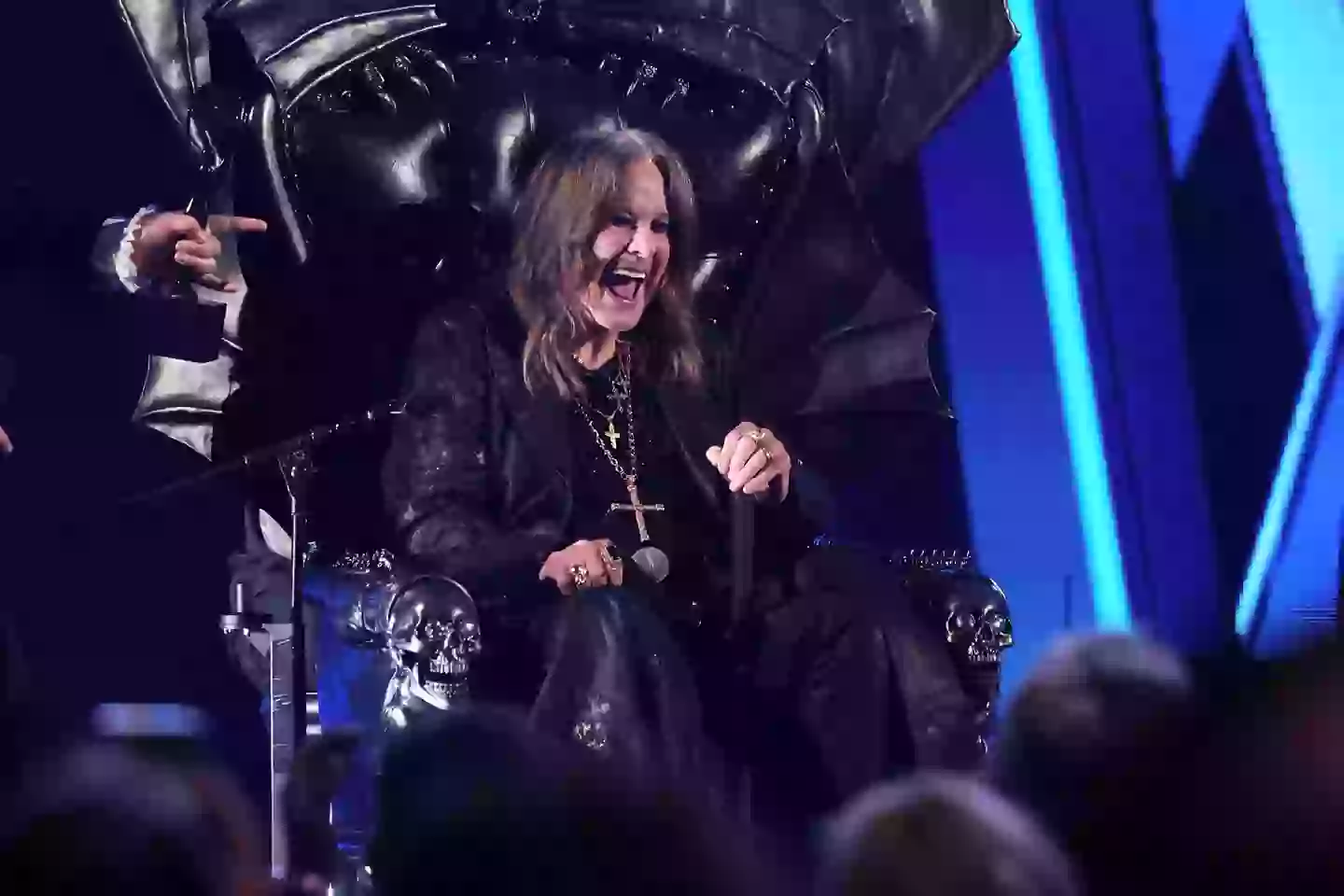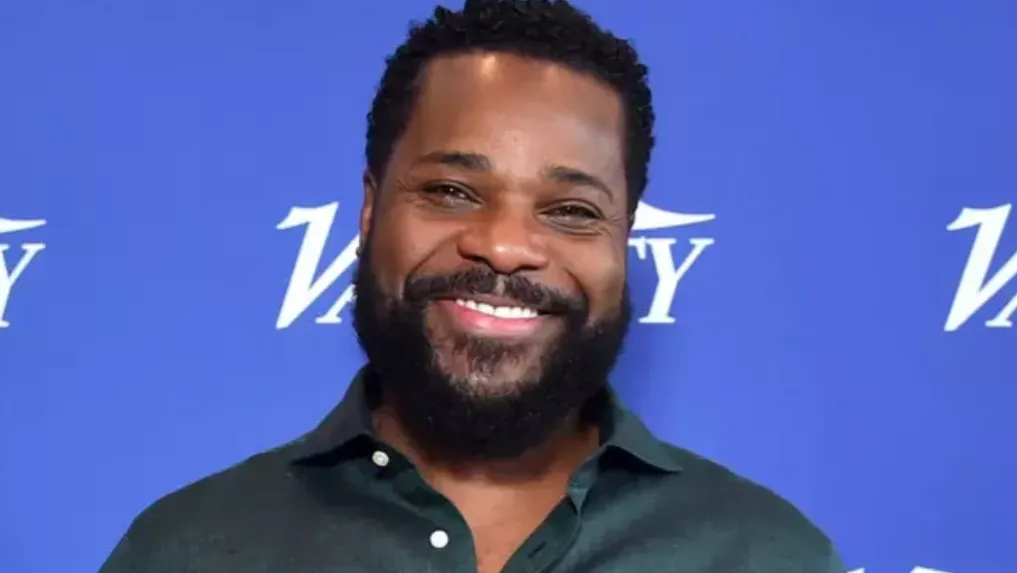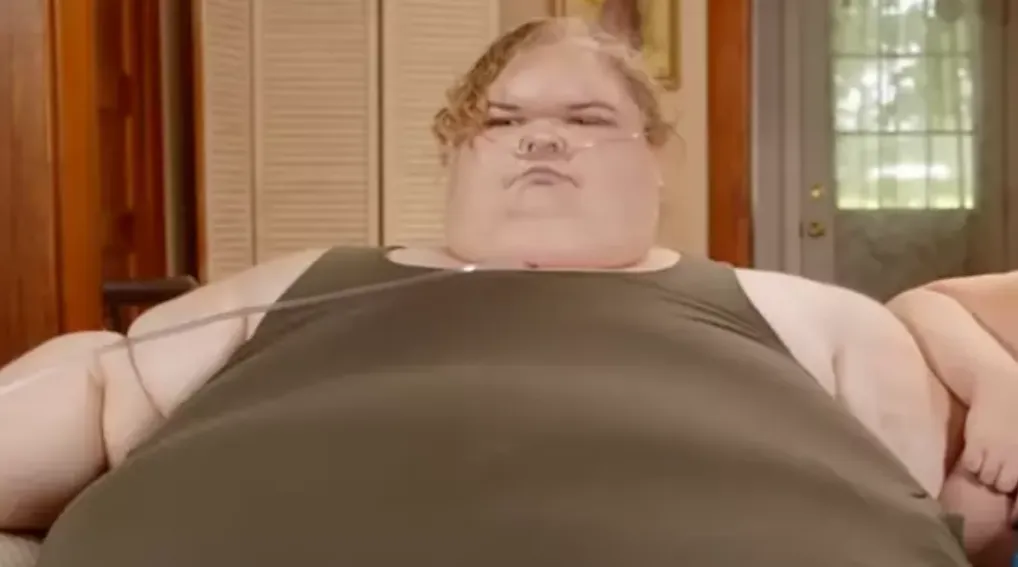Ozzy Osbourne has died aged 76
Ozzy Osbourne has died at the age of 76, his family has announced
Ozzy Osbourne has died 'surrounded by love' at the age of 76, a statement from his family said.
The singer had been diagnosed with Parkinson’s disease in 2019.
As the Black Sabbath frontman, he was at the forefront of the heavy metal scene – a deeper, darker offshoot of hard rock that took the world by storm in the 1960 and 1970s.
His theatrical stage presence, including once biting off the head of a bat, and styling himself as the Prince of Darkness marked him out as a controversial figure.
Born John Michael Osbourne on December 1948 in Aston, Birmingham, Ozzy left school at 15 and did odd jobs including factory work before teaming up with school friend Geezer Butler in several bands, PA reports.
Confirming his sad passing, a statement from the singer's family said: "It is with more sadness than mere words can convey that we have to report that our beloved Ozzy Osbourne has passed away this morning. He was with his family and surrounded by love. We ask everyone to respect our family privacy at this time."

Ozzy Osbourne has died (Kevin Mazur/Getty Images for The Rock and Roll Hall of Fame)
After being forced to cancel shows because of his illness, Ozzy made a surprise appearance at the closing ceremony of the Birmingham 2022 Commonwealth Games, while he bowed out with a gig in his hometown at Villa Park earlier this month, with performances of the Black Sabbath classics in what was dubbed a 'farewell' gig.
"You've no idea how I feel - thank you from the bottom of my heart," Ozzy told delighted concert-goers in Birmingham.
Ozzy leaves behind his wife, Sharon, and their children, Aimee, Kelly and Jack. He is also survived by Jessica and Louis, from his first marriage to Thelma Riley, as well as his grandchildren.
Tributes have been pouring in for Ozzy, including from his boyhood soccer club, Aston Villa.
They penned in a statement posted to Twitter: "Aston Villa Football Club is saddened to learn that world-renowned rockstar and Villan, Ozzy Osbourne has passed away.
"Growing up in Aston, not far from Villa Park, Ozzy always held a special connection to the club and the community he came from.
"The thoughts of everyone at Aston Villa are with his wife Sharon, his family, friends, and countless fans at this extremely difficult time."
In 2019, Ozzy had a fall which dislodged metal rods placed in his spine following a quad bike crash in 2003.
The music legend underwent multiple surgeries on his back following the incident.

The 'second surgery' which took place in 2023 went 'drastically wrong' and 'virtually left [him] crippled,' Osbourne told Rolling Stone.
"It’s really knocked me about. I thought I’d be up and running after the second and third, but with the last one they put a f***ing rod in my spine," the singer explained.
"They found a tumour in one of the vertebrae, so they had to dig all that out too.
"It’s pretty rough, man, and my balance is all f***ing up."
RIP the Prince of Darkness.
Dad with deadly brain cancer that kills in a year is cancer free after taking new drug
A breakthrough drug is fighting brain cancer head-on.
Glioblastoma is widely considered the deadliest form of brain cancer, killing over 10,000 Americans each year. There is no cure for the highly aggressive disease — many patients survive just nine months after diagnosis.

Ben Trotman was diagnosed with glioblastoma in October 2022 at 40.
Treatment focuses on managing symptoms and extending life via surgery to remove as much of the tumor as possible and radiation therapy and chemotherapy to destroy cancer cells.
Now, researchers from University College London Hospitals are recruiting glioblastoma patients for a trial of the immunotherapy drug ipilimumab. Sold under the brand name Yervoy, the monoclonal antibody stimulates the immune system to recognize and attack cancer cells.
Oncologists are optimistic since a UK father shows no signs of having a tumor after he took ipilimumab before his glioblastoma treatment.
Ben Trotman was diagnosed with glioblastoma in October 2022 at 40.
“The crucial element of this trial is that patients will have their immune system boosted by the drug before they have any other treatment, when they are fit and well enough to tolerate the immunotherapy,” said Dr. Paul Mulholland, the consultant medical oncologist leading the trial.
“We saw with Ben, the one patient recruited to the immunotherapy study, NeAT-GLIO, that he has had clear scans since having the treatment and the tumor hasn’t returned more than two and a half years later.”

Glioblastoma is widely considered the deadliest form of brain cancer, killing over 10,000 Americans each year.
Trotman met with Mulholland, who enrolled him in a clinical trial for ipilimumab. He was the first patient in the world — and the only person in the trial — to take the drug before glioblastoma treatment.
“Getting this diagnosis was the most traumatic experience,” said Trotman’s wife, Emily.
“We were grappling with the fact that Ben had gone from being apparently perfectly healthy to having months to live.”
After taking the drug, Ben underwent radiotherapy and chemotherapy.
Two years and eight months later, his scans are clear.
“It is very unusual to have a clear scan with glioblastoma, especially when he didn’t have the follow-up surgery that had been planned to remove all of the tumor that was initially visible on scans,” Mulholland said.

Ben and Emily Trotman wed in 2023, after he began his immunotherapy treatment.
“We hope that the immunotherapy and follow-up treatment Ben has had will hold his tumor at bay,” he added, “and it has so far, which we are delighted to see.”
In January 2023, months after his diagnosis, Ben married Emily. The couple welcomed a daughter, Mabel, earlier this year.
They enjoy taking her for walks along with their rescue dog, Jerry.
“We are trying to live as normal a life as possible,” Emily said.
“We are in a unique position of which there is no precedent and which comes with a great deal of uncertainty,” she continued. “We want to live each day as if it were our last, but we also want to plan for the future, which we hope to have.”
Researchers plan to recruit 16 glioblastoma patients like Ben over 18 months.
After taking ipilimumab, the trial participants will undergo radiotherapy and chemotherapy and perhaps surgery depending on the extent of their disease.

Dr. Paul Mulholland and Dame Siobhain McDonagh, who raised funds for the new clinical trial of ipilimumab.
The trial is being funded by Dame Siobhain McDonagh, a member of the British Parliament, whose sister died of glioblastoma in 2023.
“My beloved sister Margaret was appalled to discover that there had been no advances in brain cancer treatment for decades when she was diagnosed with glioblastoma,” McDonagh said. “Changing this was Margaret’s final campaign and one that I have continued in her memory.”
Treatment will take place at the NIHR UCLH’s Clinical Research Facility at the National Hospital for Neurology and Neurosurgery.
“I am delighted that this new trial, with the same immunotherapy drug I received, is going ahead and others will have the opportunity to take part,” Ben said. “It will give people newly diagnosed with glioblastoma some hope.”




